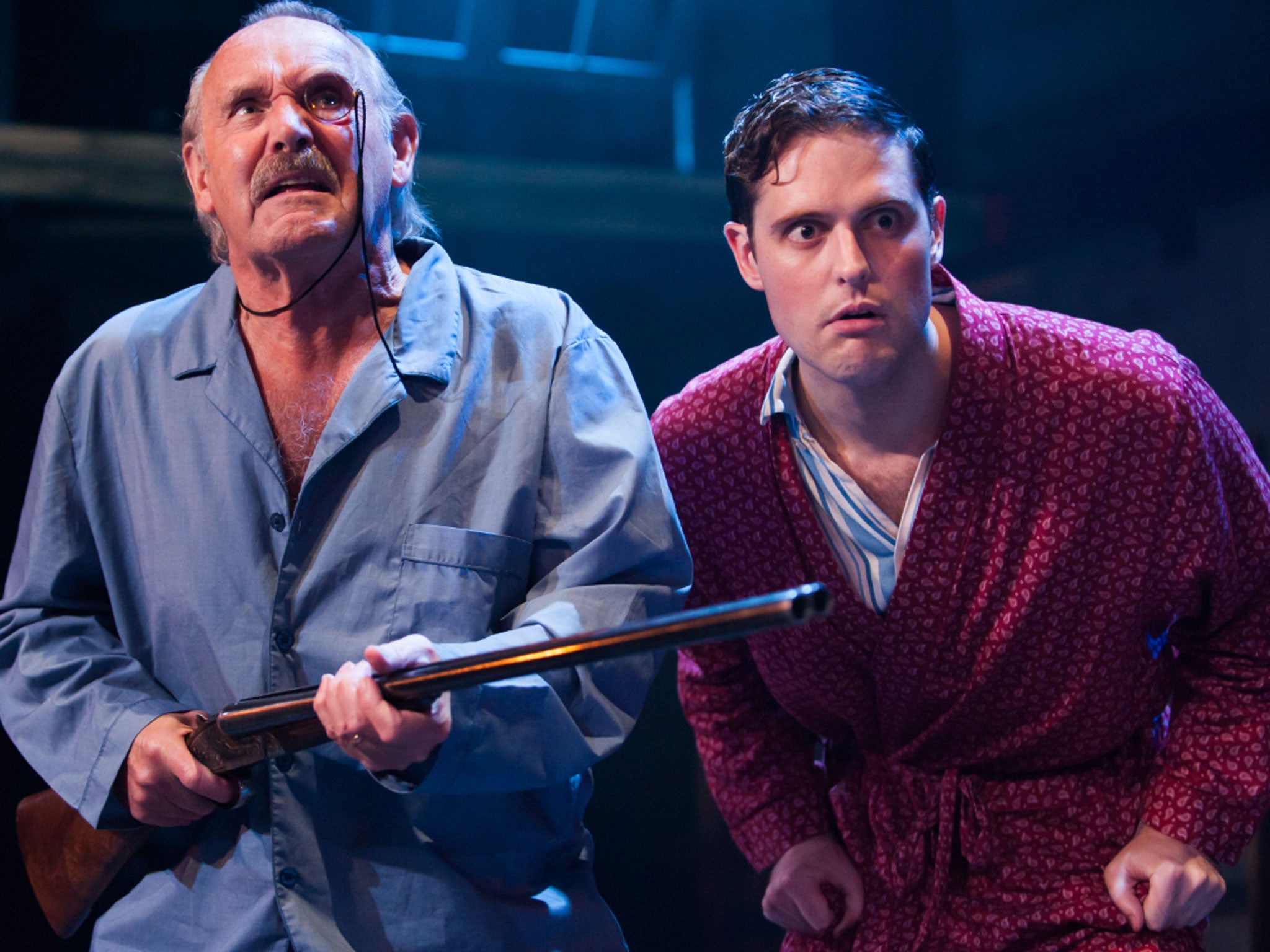
Your support helps us to tell the story
From reproductive rights to climate change to Big Tech, The Independent is on the ground when the story is developing. Whether it's investigating the financials of Elon Musk's pro-Trump PAC or producing our latest documentary, 'The A Word', which shines a light on the American women fighting for reproductive rights, we know how important it is to parse out the facts from the messaging.
At such a critical moment in US history, we need reporters on the ground. Your donation allows us to keep sending journalists to speak to both sides of the story.
The Independent is trusted by Americans across the entire political spectrum. And unlike many other quality news outlets, we choose not to lock Americans out of our reporting and analysis with paywalls. We believe quality journalism should be available to everyone, paid for by those who can afford it.
Your support makes all the difference.Thanks to Feydeau and his followers, we tend to think of farce as the most sex-fuelled of genres, full of randy bourgeois types, bent on bedding one another, who desperately struggle to keep up a front of respectability as the frenzy mounts and their reputations disintegrate with a hurtling, remorseless logic. The improprieties are a good deal less priapic and the pace considerably gentler in the work of Ben Travers, whose 1927 Aldwych farce is now engagingly revived at the Park Theatre by Eleanor Rhode for Snapdragon Productions in Clive Francis's new adaptation.
Attempted hanky-panky may start the ball rolling but the comedy here is essentially about as lust-driven as the plots in P G Wodehouse whose world it recalls in its assembly of silly-asses and dragon dowagers. Sir Hector Benbow, a baronet and Master of Foxhounds, is planning to have supper with a South Molton Street shop girl who has caught his eye. The unexpected return of his redoubtable wife puts paid to that idea and in attempting to help his uncle out of this scrape, Ronny, the likeable chump of a nephew, keeps arousing the wrath of his suspicious fiancee, Kitty, Sir Hector's ward.
The plot is even creakier than the eponymous country house (just sold to the nouveau riche Mrs Frush) to which the entire cast repair in the final act to investigate complaints about ghostly goings-on. It's the dottiness of the cross-talk and the attractive idiocy of the situations rather than any sense of genuinely escalating mayhem (the spookiness doesn't arise from anything that's gone before) that give the play its period charm. Not all of Rhode's company look to be on the right wavelength, however, and, at times, the production feels strained and effortful. But, fingers splayed and torso twisted in the permanent suppression of panic, James Dutton is spot-on and delectably funny as the plucky, vacuous Ronny, forming an endearing double-act with Clive Francis's excellent Sir Hector, a monocled, cowardly old roue whose default operation would seem to be backing surreptitiously away from his spouse (a boomingly commanding Mary Keegan).
The scene in which, during a thunderstorm-ridden night, the two men have to share a bed in the possibly haunted room at Thark is a classic piece of blissful tomfoolery, with Andrew Jarvis hilarious as the creepy butler whose surname, Death, is relatively soothing compared to the sinister repertoire of groans, hisses and disarmingly sudden glares to which he treats the guests. An entertaining show, if lightweight and insubstantial.
To September 22; 020 7870 6876
Join our commenting forum
Join thought-provoking conversations, follow other Independent readers and see their replies
Comments